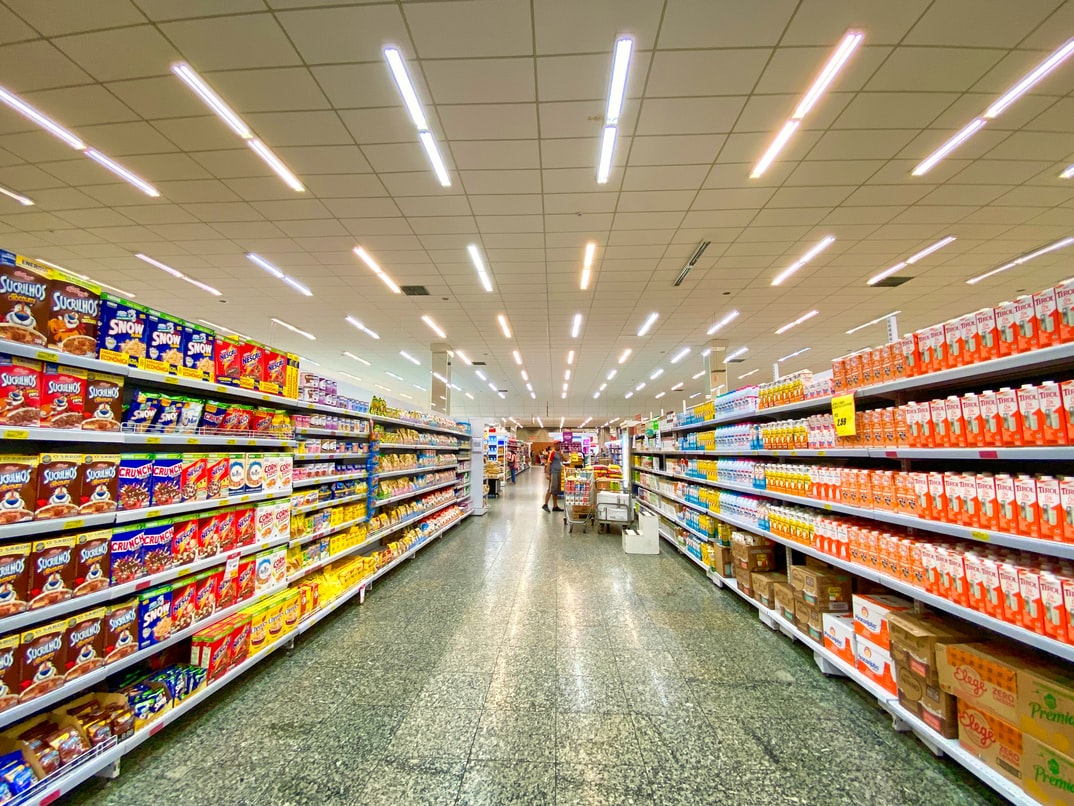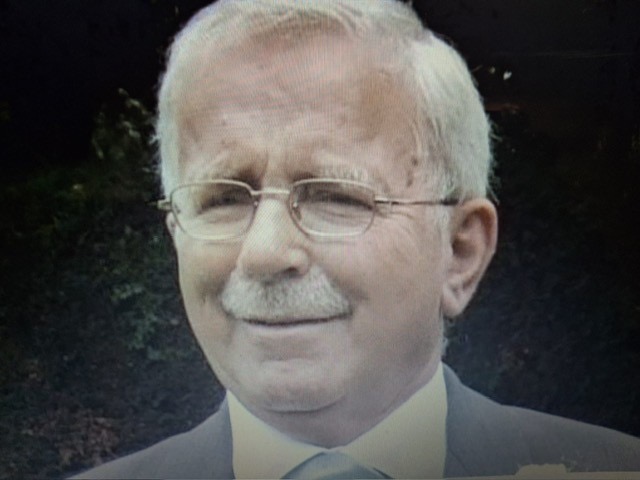Supermarket chains in the United Kingdom have been responding to COP26 by announcing their own plan to reduce their carbon footprint over the coming years.
This is what Waitrose are planning to do:
The John Lewis Partnership has joined a leading group of businesses that have signed up to the SBTi Business Ambition for 1.5°C and also joined UNFCCC Race to Zero campaign*.
To mitigate some of the worst climate impacts and prevent a state of irreversible damage to societies, economies and the natural world, it’s essential that we hold temperature rise to 1.5°C above pre-industrial levels. This means halving greenhouse gas emissions by 2030 and reaching net-zero emissions by 2050.
Marija Rompani, Director of Sustainability & Ethics at the John Lewis Partnership, comments: “This is a critical year for climate policy. World leaders are meeting at COP26 in a few short weeks and it’s essential that this global summit accelerates action towards the goals set out by the Paris Agreement and UN Framework Convention on Climate Change.
“We are absolutely committed to that ambition and recognise the important role the retail industry has in supporting its goals. We of course will not be able to solve the climate crisis alone, but we are prepared to take bold action to ensure we’re part of the solution and we look forward to taking this critical next step as we set our science based targets.”
We are in the process of establishing our science-based targets for Waitrose and John Lewis in line with the 1.5°C pathway. This builds on our existing commitments to reach net zero emissions across our entire operations by 2035, and to source only from net zero farms in the UK by 2035. It will also ensure that our business follows a credible and scientifically verified carbon reduction pathway as we support the journey to net zero emissions.
The Partnership has appointed new Climate Change Specialists to strengthen the team and bring additional expertise to help set the targets and our roadmap for Net Zero – Alex Sutton and Simon Winch.
- Alex will lead our climate change programme. He joins from SSE where he held the position of Chief Sustainability Officer for their network’s business and created a sector-leading Net Zero Strategy for their £2.2bn 5-year Business Plan. He also set the world’s first 1.5 degree Science Based Target for a networks company.
- Simon joins as environment lead, with responsibility for the Partnership’s approach to climate change, as well as biodiversity, circularity and food waste. Previously at Virgin Group, Simon has a decorated career in sustainability, having worked in the area as a consultant within higher education, in the public and voluntary sectors, and as CEO of global plant-based non-profit Veganuary.
Elsewhere, Sainsbury’s confirmed some ambitious plans:
Sainsbury’s has today strengthened its commitment to tackle the climate crisis by accelerating its target to become Net Zero in its own operations by 2035, five years earlier than its original ambition and aligned to UN’s goal to limit global warming to 1.5 degrees.
The retailer has cut its carbon footprint by 47% in the last 17 years despite its space increasing by over 40%. In the last year, Sainsbury’s has reduced its absolute greenhouse gas emissions from its own operations by 25,580 tCO2e, year-on-year.
To help achieve its target Sainsbury’s will install 100% LED lighting across its supermarkets by the end of this year, reducing lighting energy consumption by 70% and store energy consumption by 20%. This follows an extensive financial investment of £320 million in the past ten years, funding more than 3,100 sustainable initiatives.
By the end of the year the supermarket will be using 100% renewable electricity across its entire estate and has committed to the long-term purchasing of renewable energy from new wind farms and solar projects to be built over the next two years, significantly reducing its reliance on fossil fuels.
The United Nations this year warned that global warming of 2 degrees will be exceeded during the 21st century unless emissions are rapidly reduced in the coming decades. Sainsbury’s has moved forward its goal for net zero in its own operations, recognising that we must all act now to protect the planet for generations to come.
The retailer has made significant progress in the last two years, reducing its greenhouse gas emissions in its own operations by 14%. However, to meet its ambition target Sainsbury’s acknowledges that it will need to collaborate with government, industry, suppliers and academia to share knowledge and find solutions.
As a retailer sourcing over 30,000 products from over 70 countries Sainsbury’s is also working collaboratively with its suppliers to set their own ambitious net zero commitments, with the goal of reducing Scope 3 emissions in its value chain by 30% by 2030. This includes reducing emissions from purchased goods and services sold, upstream transport and distribution and the direct use of sold products. This year Sainsbury’s has written to 400 of its top suppliers asking them to report and disclose against their carbon reduction targets.
To showcase the incredible work its food producers are already doing to tackle climate change, the retailer has launched ‘Sainsbury’s Global Farm’, an online resource connecting customers with different suppliers around the world. In partnership with LEAF, a global charity which develops and promotes sustainable farming, Sainsbury’s hopes to raise awareness of where food comes from, how it is produced and how the retailer is working with farmers to drive lasting positive change in the communities it serves and sources from. Customers will be able to meet the farmers behind some of their favourite food and discover how their farming practices are better for the planet.
Simon Roberts, CEO of Sainsbury’s, said:
“The clock is ticking. Climate targets matter – but action to deliver them matters more. The progress we’ve made has enabled us to accelerate our own targets and move faster to cut our emissions. We recognise that we not only have a responsibility to our colleagues and the communities we serve in the UK, but to those we source from globally, to reduce the impact our business has on the environment. The United Nations report made clear that we all need to step up our efforts and be ambitious in our pursuits to limit global warming to 1.5 degrees.
“We have a strong heritage in reducing our own emissions and are collaborating closely with our suppliers to ensure we’re driving positive change across our value chain too. Tackling the climate emergency requires collaborative and transformational thinking across industry and government, and a willingness to work together and share learnings globally, so that we can all take meaningful, immediate action. I’m really proud that Sainsbury’s continues to lead the charge and encourage others to change and evolve with us for the benefit of all.”
COP26 President-Designate, Alok Sharma said:
“With the COP26 climate summit starting in a few days, I am delighted that our Principal Partner, Sainsbury’s, will be going net zero by 2035. This is a great example of the climate leadership we need across all sectors as we work together to keep 1.5 degrees within reach.”
Business and Energy Secretary, Kwasi Kwarteng said:
“We are putting businesses at the very heart of our efforts to end the UK’s contribution to climate change by 2050, with our landmark Net Zero Strategy setting out how going green and economic growth can go hand in hand.
“With the historic UN COP26 climate summit in Glasgow just days away, it is fantastic to see a heavyweight brand like Sainsbury’s showing leadership by accelerating their plans to reach net zero emissions by 2035. I hope this will encourage other businesses to show the same level of ambitions.
Sainsbury’s is calling on other retailers and businesses to join it on this journey and will endeavour to help customers make more sustainable product choices, helping everyone eat better for themselves and for the planet.
As part of its role as Principal Supermarket Partner at next month’s COP26, Sainsbury’s will work collaboratively with world leaders, climate experts and businesses at the centre of decision making to help drive lasting change.
Morrisons has committed to cutting emissions with some fantastic targets:
Morrisons has brought forward its commitment to be net zero carbon emissions from its own operations by 2035, five years earlier than initially pledged and 15 years ahead of the UK government target*.
Morrisons is also committing to reducing its wider ‘Scope 3’ emissions across its entire own brand supply chain – by 30 per cent by 2030 and is already working with suppliers to support them in this.
Morrisons is ahead of forecast in reducing its operational carbon emissions. A 33 per cent cut in carbon emissions was promised by 2025, and the current reduction has already reached 32 per cent – saving almost 300,000 tonnes of CO2 since 2017.
Future carbon reductions will be achieved by: being directly supplied by ‘net zero’ carbon British farms; reducing energy and using renewable energy; using low carbon vehicles and offering EV charging; reducing food waste and food miles and ensuring zero deforestation in its supply chains. It also plans to help its suppliers audit and reduce their CO2 emissions. Morrisons has a strong carbon reduction plan, rather than relying heavily on offsetting.
As part of its carbon reduction plan Morrisons will become the first supermarket to own and operate its own solar ‘farm’ across sites and stores**. The ‘farm’ will become the latest addition to Morrisons sites and infrastructure giving increased control over its operations and costs. Morrisons currently owns 18 food-making facilities across the country.
Almost all of the power generated from the solar panels will be channelled straight into Morrisons stores and sites, rather than going into the national grid. The green energy will supply Morrisons store appliances that require the most energy, like fridges and freezers.
David Potts, CEO at Morrisons, said: “The climate crisis is the greatest challenge of our generation – and the time is now. As a supermarket we depend on a healthy planet to produce the goods we sell to customers.
“We’ve committed to removing carbon emissions, rather than setting a carbon neutral target that would depend heavily on offsetting. We’re also investing resources to bring forward our net zero commitment by five years which is very ambitious but very necessary. Our new solar farm and net zero carbon agriculture programme are just two ways we’ll achieve our commitment.”
Hugh Jones, Managing Director – Advisory, at the Carbon Trust said: “By aligning its goals with a 1.5°C future Morrisons is ensuring it builds resilience firmly into its business model and will be positioned to thrive as the global economy moves to zero emissions.”
Morrisons is supportive of the UN’s Sustainable Development Goals which aim to end poverty, fight inequalities and tackle climate change globally by 2030. The company is a signatory to the British Retail Consortium’s Climate Change Roadmap to limit global warming to 1.5 degrees – in line with the highest ambition of the international Paris Agreement – to limit temperature rises to 1.5 degrees above pre-industrial levels.
Morrisons has worked with the Carbon Trust to measure its emissions and set science-based carbon reduction targets*. It is also working with the Science Based Targets initiative (SBTi) on the approval of its ‘Scope 3’ targets. It will report on progress every year.




